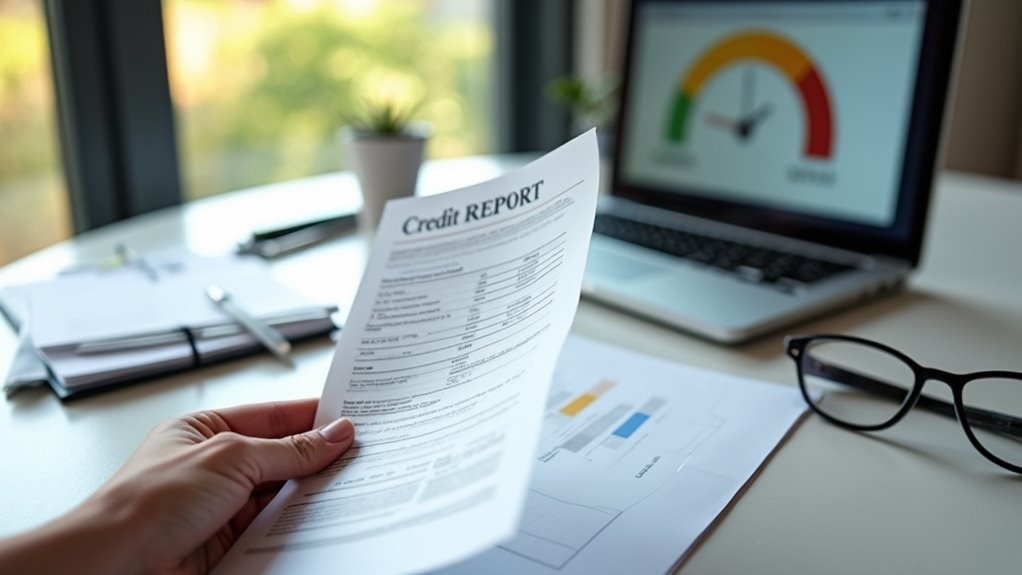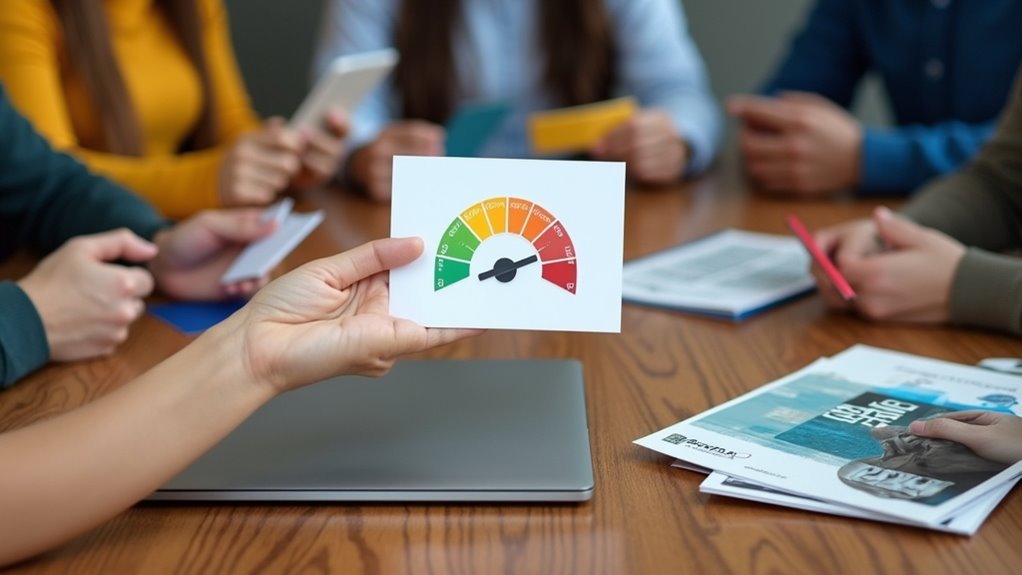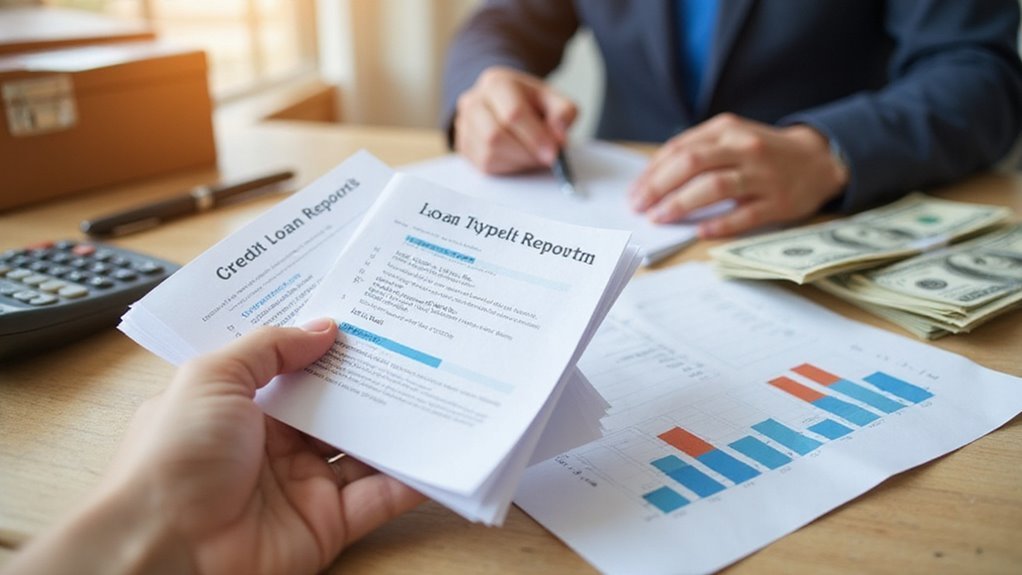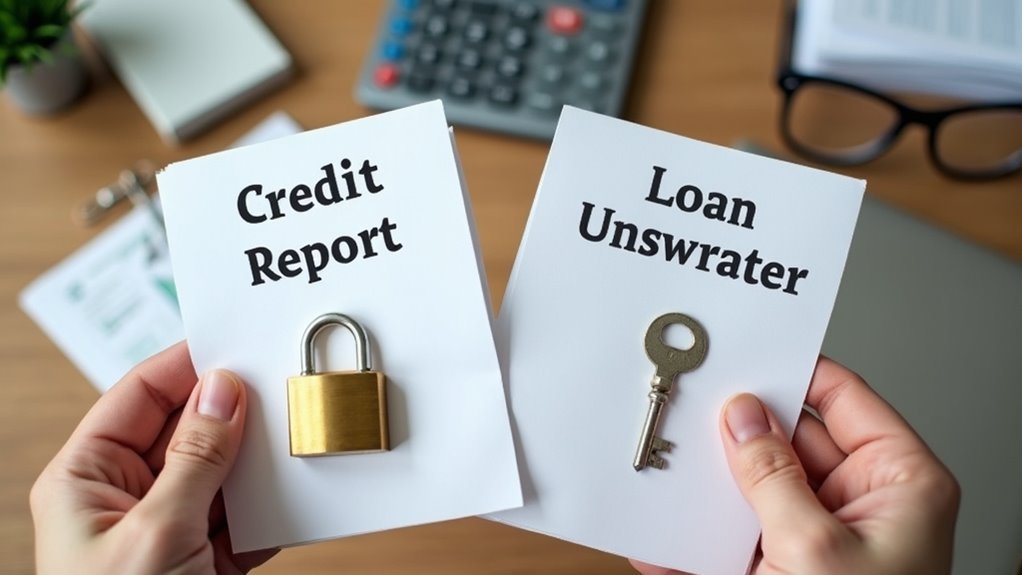


Getting a personal loan can be stressful if you do not know what credit score you need. Many people worry about being denied or getting high interest rates. Your credit score affects whether you qualify and how much you will pay.
If you apply with a low score, you may face rejections or expensive loan terms. This can make financial problems worse and limit your options for borrowing money. It is important to know the requirements before you apply. Most lenders require a credit score between 660 and 700 to approve a personal loan, but some accept lower scores.
If your score is lower, you may still qualify with a secured loan or by improving your credit first. Checking your score and understanding lender requirements can save you time and money. This blog will show you how to find the right loan and improve your chances of approval.

A credit score shows how likely you are to pay back borrowed money. Scores usually range from 300 to 850. Credit bureaus calculate your score using different factors. Payment history makes up 35% of your score. The amount you owe counts for 30%. Your credit history’s length is 15%. New credit and credit mix each make up 10%. If you have a high score, you may get better loan rates.
Missed payments or large debts can lower your score. Lenders may see you as risky if your score drops. Credit counseling can help you manage debt and pay on time. If you follow good habits, your score may improve. Lenders often use credit scoring models to interpret your score and determine your eligibility for a personal loan. Regular credit monitoring can help you track changes to your score and detect suspicious activity early.
Credit scores are important because they influence your chances of getting a personal loan. Lenders use your score to measure risk. A higher credit score makes it easier to get approved and get a better interest rate. If your score is low, lenders may deny your application or give you a higher rate.
This is especially true if you want a loan for debt consolidation or after credit counseling. Credit scores are calculated based on payment history and other factors that lenders review to assess your overall creditworthiness. Here’s how your credit score affects a personal loan:
Your credit score guides lender decisions throughout the loan process. In addition to credit scores, lenders may also consider income stability and employment history when reviewing your personal loan application.

You’ll typically need a credit score of at least 600 to 660 to qualify with most major personal loan lenders, though some set the bar even higher. If your score falls below these thresholds, alternative lenders may consider applicants in the 550 to 600 range, sometimes offsetting risk with higher interest rates.
Understanding these minimum requirements helps you target lenders that align with your credit profile. In general, having a higher credit score gives you access to lower interest rates and better loan terms, similar to how car loans work. During periods of rising interest rates, lenders may tighten their requirements, making a strong credit score even more important when seeking approval.
Lenders set minimum credit scores for personal loan approval. These scores show how risky a borrower might be. If your score is high, you get better rates. Here are common credit score ranges:
Start Free Credit Monitoring Now
Lenders use these ranges to decide quickly and manage risk.
Alternative lenders offer more flexible options for people with low credit scores. Online lenders, credit unions, and peer-to-peer platforms may accept scores as low as 560. Major banks usually want a credit score of 660 or higher. Some lenders focus on helping people with poor credit.
You should check each lender’s minimum credit score before applying. If your score is below 600, credit counseling could help you improve your chances. Always compare rates, fees, and terms to find the best fit.
You’ll notice that FICO and VantageScore use different scoring models, which can result in varying credit scores even with identical credit reports. FICO bases 35% of its score on payment history, while VantageScore puts more weight on total credit usage and recent behavior. These distinctions can directly affect your chances of personal loan approval, as lenders may prefer one model over the other.
To better understand how these differences impact your loan eligibility, it’s helpful to review factors affecting credit scores and how each scoring model evaluates your credit behavior. Additionally, understanding how credit monitoring tools help you track changes in your score can offer insight into what lenders see and how you can improve your approval odds.
Credit scores may change depending on the scoring model used. FICO and VantageScore are the two main models. They both use your credit history, but they do not treat all factors the same. FICO gives the most importance to payment history at 35 percent. VantageScore focuses more on your total debt and available credit. Both usually use a 300 to 850 score range.
However, some VantageScore versions use a 501 to 990 range. VantageScore can give you a score with just one month and one account. FICO usually needs at least six months of credit history to generate a score. If you are new to credit, VantageScore may score you sooner.
Your loan approval chances depend on the credit score model the lender uses. Most lenders use FICO scores. Some use VantageScore, which reacts faster to recent credit changes. If you have recently finished credit counseling or started debt consolidation, VantageScore may show improvement sooner. FICO is slower to update these changes. Check which score model your lender uses before applying for a loan.
| Factor | FICO Score Impact |
|---|---|
| Recent Credit Activity | Less significant |
| Credit Counseling | Updates slowly |
| Debt Consolidation | Takes longer to reflect changes |
| Approval Odds | Varies by scoring model |

The loan amount affects the credit score you need. Bigger loans usually need higher credit scores. Lenders see large loans as risky. They want to make sure you can handle the debt. If you ask for a small loan under $5,000, you may qualify with a fair credit score (580–669). For loans between $5,000 and $15,000, lenders often want a good credit score (670–739).
If you need a loan over $15,000, you usually need a very good or excellent score (740+). Lenders also consider your debt-to-income ratio along with your credit score when determining if you qualify for a larger personal loan. Lenders may also review your credit utilization rate to assess how much of your available credit you are currently using, as this can impact your ability to manage additional debt.
Income and debt-to-income (DTI) ratio help lenders decide if you can repay a personal loan. Lenders check your income by asking for pay stubs, bank statements, or tax returns. They usually want your DTI to be below 36% to 43%. This means your total monthly debts, including the new loan, should not exceed this share of your gross income. A lower DTI shows you manage debt well and lowers your risk as a borrower.
If your income cannot be verified, or your DTI is too high, you may be denied or get a higher interest rate. Try to keep a good balance between your income and debts. Establishing an emergency fund can also help improve your financial profile and demonstrate responsible money management to lenders. Some lenders also consider BNPL loans and DTI when evaluating your personal loan application, since multiple BNPL accounts can raise your monthly obligations and affect loan approval chances.

When you apply for a secured personal loan, lenders often accept lower credit scores because collateral reduces their risk exposure. In contrast, unsecured loans usually demand higher scores, with many lenders setting a minimum FICO threshold of 660 or above. This difference reflects how lenders assess risk based on whether or not they can recover losses through pledged assets.
Additionally, student loan management strategies—such as timely payments, refinancing, or using income-driven repayment plans—can impact your overall credit profile and, by extension, your eligibility for both secured and unsecured personal loans. Lenders also look at your credit utilization when making decisions, as keeping your used credit below 30% of the available limit is a key factor in maintaining a good credit score.
Collateral makes it easier to get approved for a loan with lower credit. Lenders see collateral as protection if you cannot pay. If you use assets like your car or savings, lenders may accept lower credit scores. They are more likely to approve borrowers with fair or poor credit.
Here’s how collateral lowers the credit threshold:
Unsecured loans need higher credit scores because there is no collateral. Lenders rely mostly on your credit history to decide. Most lenders want a credit score of at least 660 for these loans. Better interest rates usually require a score of 700 or more.
Lenders check your payment history and how much debt you have. Late payments or high balances can hurt your chances. If your credit report shows you pay on time and keep balances low, you are more likely to get approved. Good debt habits may also help you get better loan terms.
Lenders look at risk differently for secured and unsecured personal loans. This affects the credit score you need to qualify. Secured loans need collateral, like a car or savings. Collateral lowers risk for the lender. If you default, the lender can take the collateral. Unsecured loans do not use collateral. Lenders rely only on your credit history and income.
If you apply for a secured loan, you may get approved with a lower credit score, sometimes as low as 600. Unsecured loans usually require a higher credit score, often 660 or above. Lenders check collateral, payment history, and debt-to-income ratio for each loan type. If you have poor credit, a secured loan might be easier to get. If you have strong credit, you may qualify for an unsecured loan.

Credit scores have a direct impact on your personal loan interest rate. Lenders use your score to judge how risky you are. A high score means you have paid debts on time before. If you have a high score, you may get a lower interest rate. This lowers your total repayment cost. A low credit score shows more risk to lenders. If you have a lower score, you will likely get a higher interest rate.
This means you pay more over the life of the loan. A strong credit history can help you qualify for better rates and more loan options. If your credit is weak, you may have fewer choices and pay more to borrow. Lenders also consider your credit mix and payment history when determining your interest rate, as these factors reflect your overall creditworthiness and ability to manage different types of debt.
Alternative lenders use different rules to decide if you can get a loan. They do not rely only on your credit score. Many lenders look at your income and job status. Some also check your banking history for patterns.
Some lenders use soft credit checks, which do not hurt your credit score. This makes applying safer for you. If you need money fast, these lenders often make decisions quickly. Many use technology to approve loans faster than banks.
If you have fair or poor credit, you still have borrowing options. Lenders may offer loans even with scores under 670. These loans often have higher rates and stricter conditions. You should compare all offers carefully to find the best fit.
| Option | Key Consideration |
|---|---|
| Secured Personal Loans | You must provide collateral to qualify. |
| Credit Union Loans | These may be easier to get if you are a member. |
| Co-Signed Personal Loans | A co-signer can help you get better terms. |
| Online Lenders | These lenders offer quick approvals and flexible rules. |
| Peer-to-Peer Lending | This option connects you with individual investors. |
Choosing the right option can help you save money and manage your debt more easily.
You’ll boost your credit score most efficiently by paying all bills on time, since payment history accounts for 35% of your score. Reducing your credit card balances is also crucial, as credit utilization makes up another 30%. Focusing on these proven factors gives you the strongest chance to qualify for better personal loan rates.
Paying bills on time is the most important part of your credit score. Payment history makes up about 35% of your FICO score. Lenders use this information to see if you are likely to repay a loan. If you often miss payments, your credit score can drop a lot. You might also face higher interest rates.
You can avoid late payments by setting up automatic payments for your bills. Regularly check your accounts to spot any missed payments early. If you think you will miss a payment, contact your creditor as soon as possible. They may offer help if you explain your situation. Paying on time also helps lower your credit card balances. This can make your credit profile stronger.
Reducing credit card balances can help raise your credit score. Credit utilization is about 30% of your FICO score. You should keep your balances below 30% of your credit limit. For the best results, keep it under 10%. High balances lower your score and increase interest charges.
Lenders prefer to see low balances because it shows you manage credit well. If you pay down high-interest cards first, you save more money. You should also avoid making new charges while paying off balances. If you analyze your spending, it is easier to find extra money to pay bills.
Lenders check your finances before approving a personal loan. They look at your credit score, income, job status, and debts. This process helps them decide if you can repay the loan. If you apply, you will likely see a simple and clear process. Lenders try to reduce their risk and help you understand your options.
First, you fill out an application online or in person. Next, the lender checks your credit report to see your payment history. You may need to give documents like pay stubs or tax returns to show your income and job.
Your actions during the loan process can affect your chances of approval. Lenders look at your credit history, income, and documents. High credit card balances may make lenders see you as risky. If you apply to many lenders at once, your credit score may drop from hard inquiries. Always check loan offers before choosing one. Never exaggerate your income or leave out required information. Lenders will check your details, and mistakes can cause your loan to be denied. The table below lists common mistakes and their effects:
| Mistake | Impact on Approval or Terms |
|---|---|
| High credit utilization | Higher interest, possible rejection |
| Multiple hard inquiries | Lower credit score, lower odds |
| Incomplete/inaccurate info | Loan denial, slower process |
Monitoring and improving your credit score is important for getting a personal loan. Good credit can help you qualify for better rates. If you want to build your credit, you can use these helpful resources:
Using these tools can help you make smart decisions about your credit.
If you want to qualify for a personal loan, you usually need a credit score of at least 660. If your score is 700 or higher, you may get better interest rates and larger loan amounts. Lenders use your credit score to decide how risky it is to lend to you.
If your score is below 660, you might still get a loan, but the terms may not be as favorable. If you can improve your credit score, you could increase your chances of approval and save money on interest. Every on-time payment and careful financial choice can help raise your score.
If you are ready to take control of your finances, start by tracking your credit regularly. If you use a Finance Monitoring Guide, you can stay informed and make better decisions. If you monitor your credit, you can be ready when the opportunity for a personal loan arises.
Understanding what influences your credit score makes it much easier to interpret credit checks. Discover more insights and tips at the Finance Monitoring Guide.
(+1) 5165229807
info@financemonitoringguide.com
500 Marquette Ave NW, Suite 1200 Albuquerque, NM 87102 United States